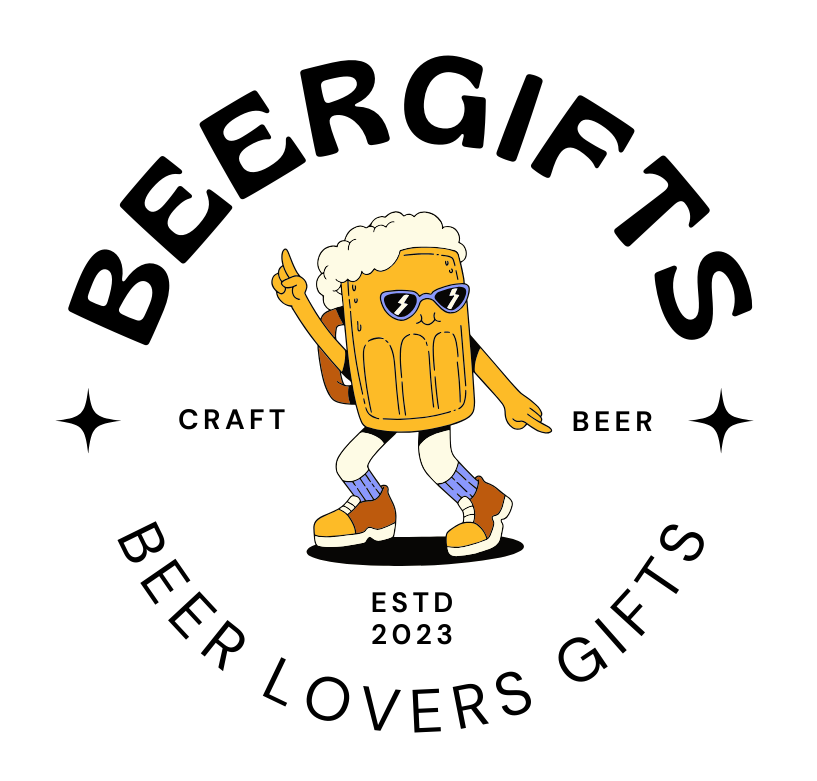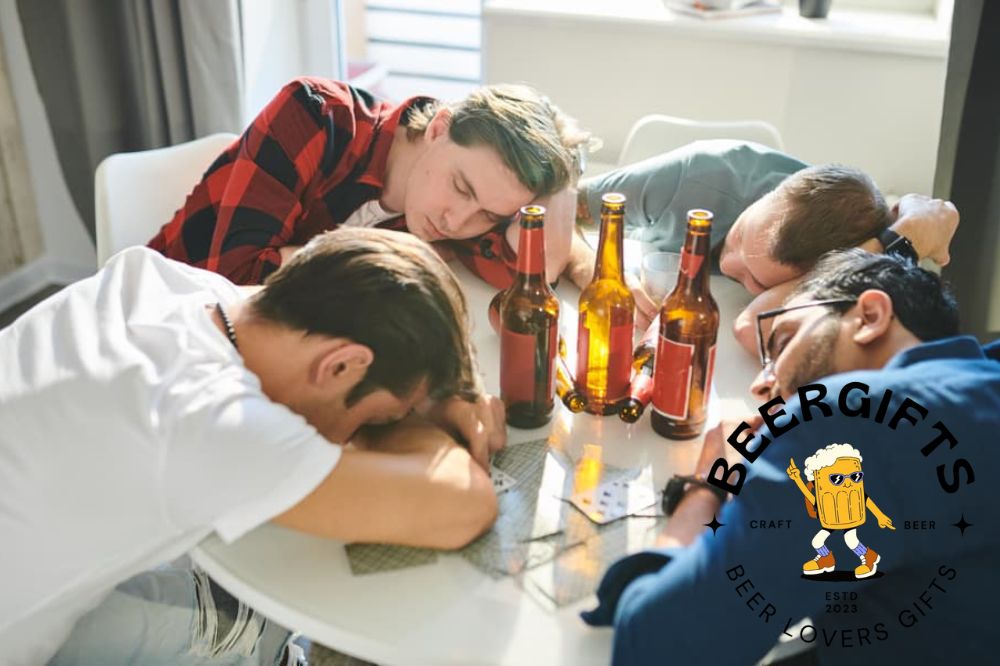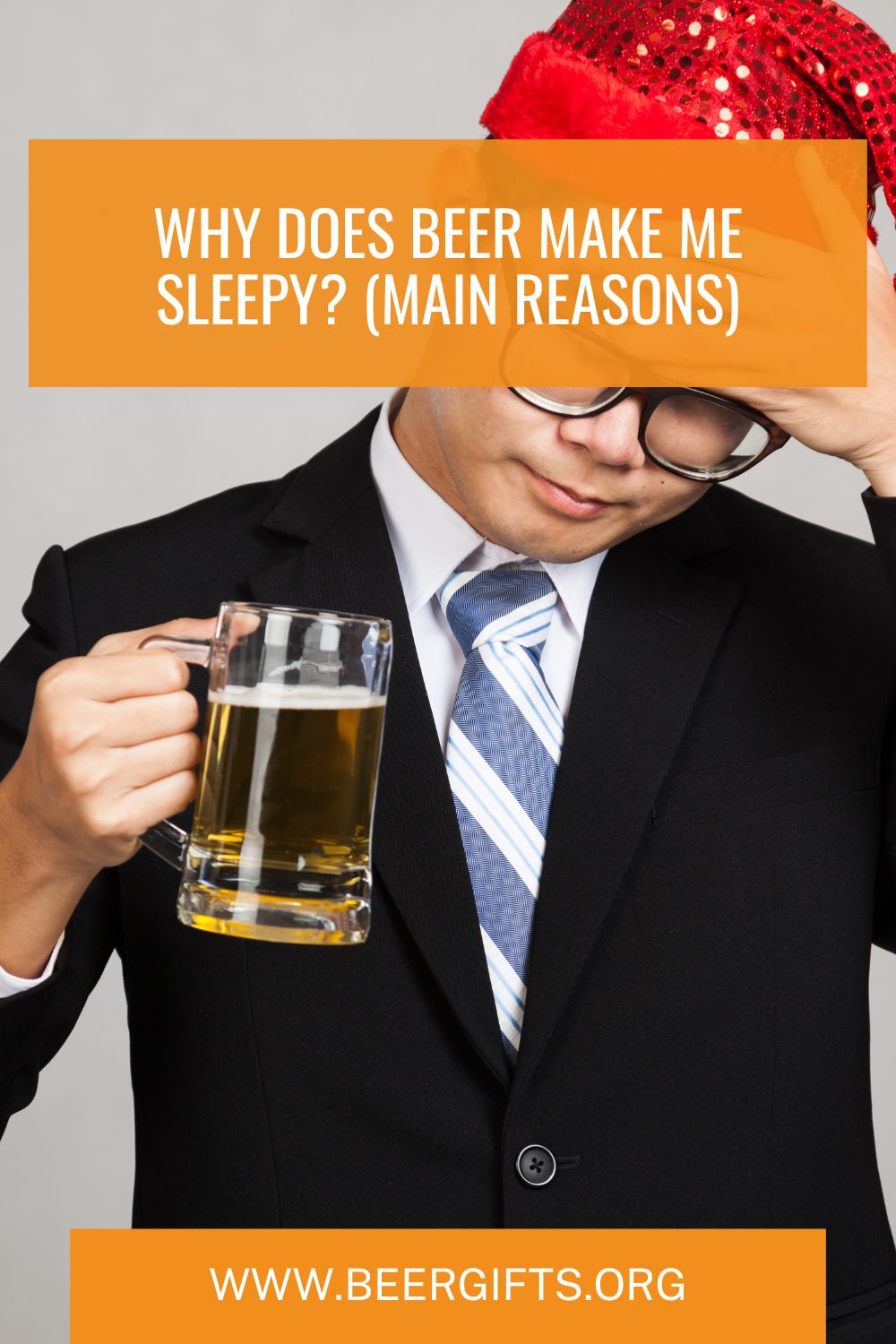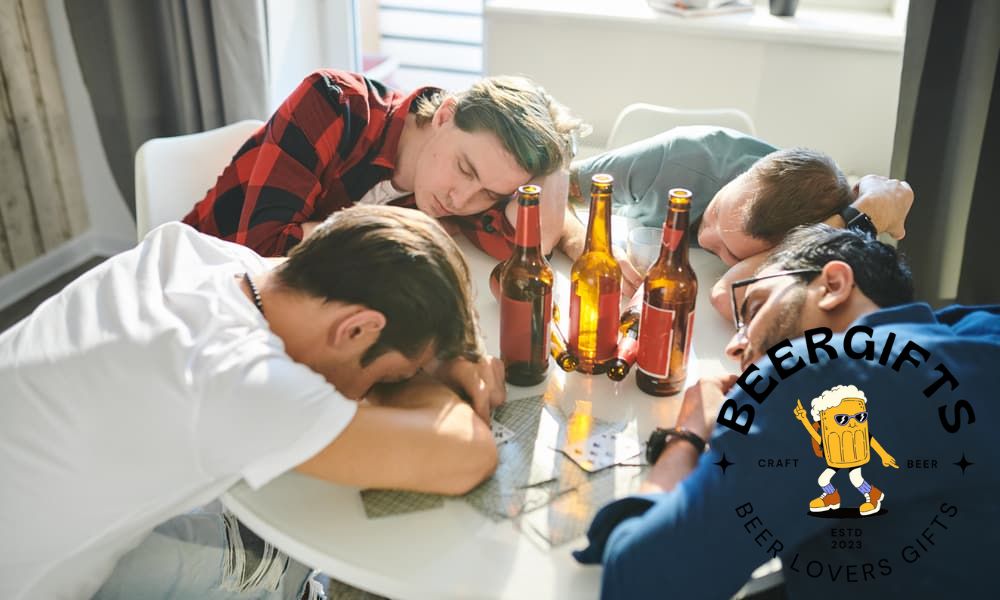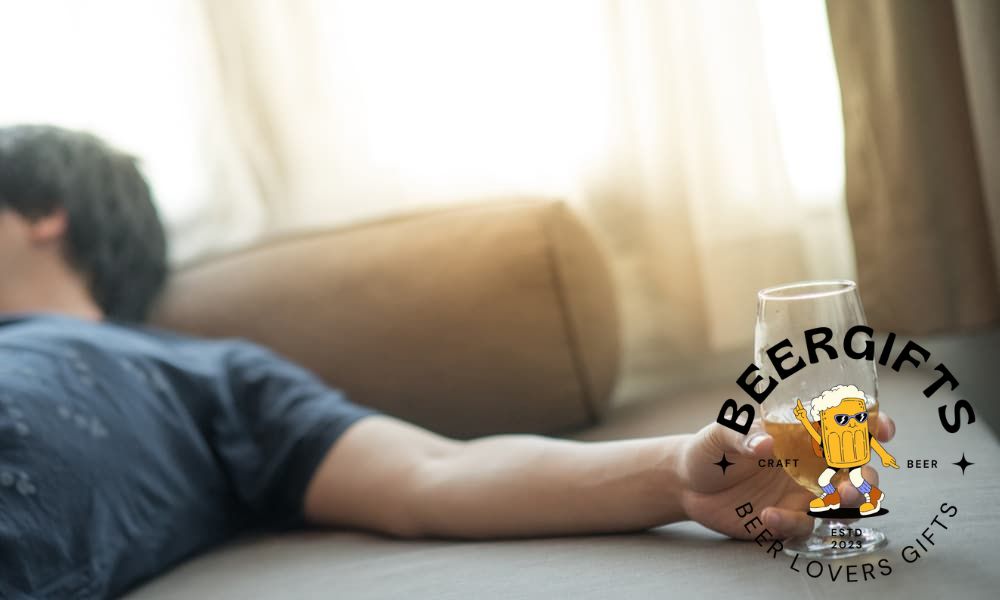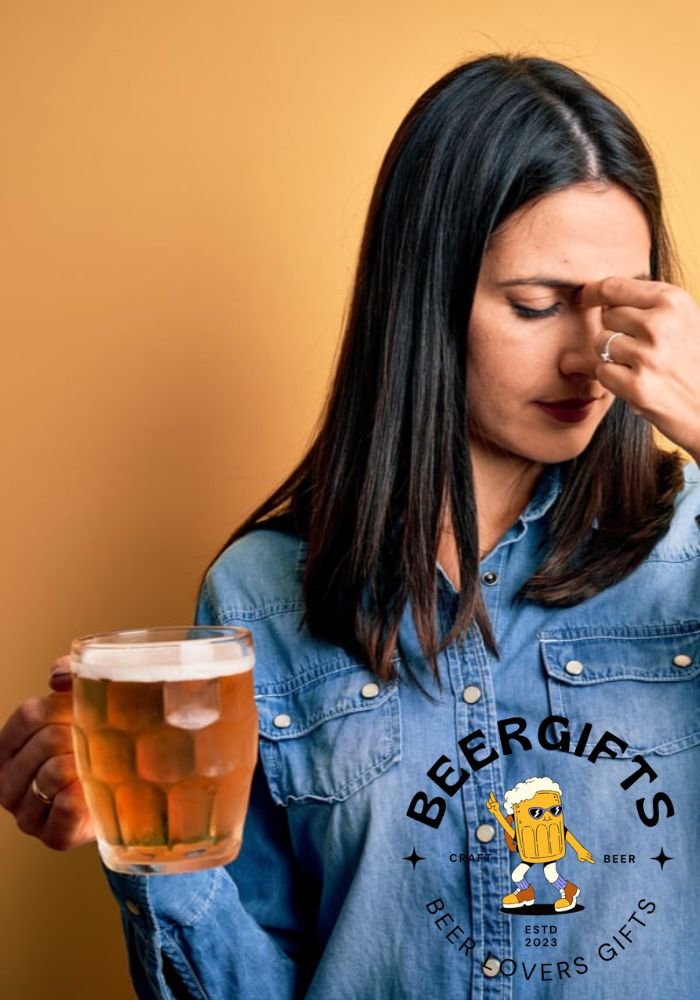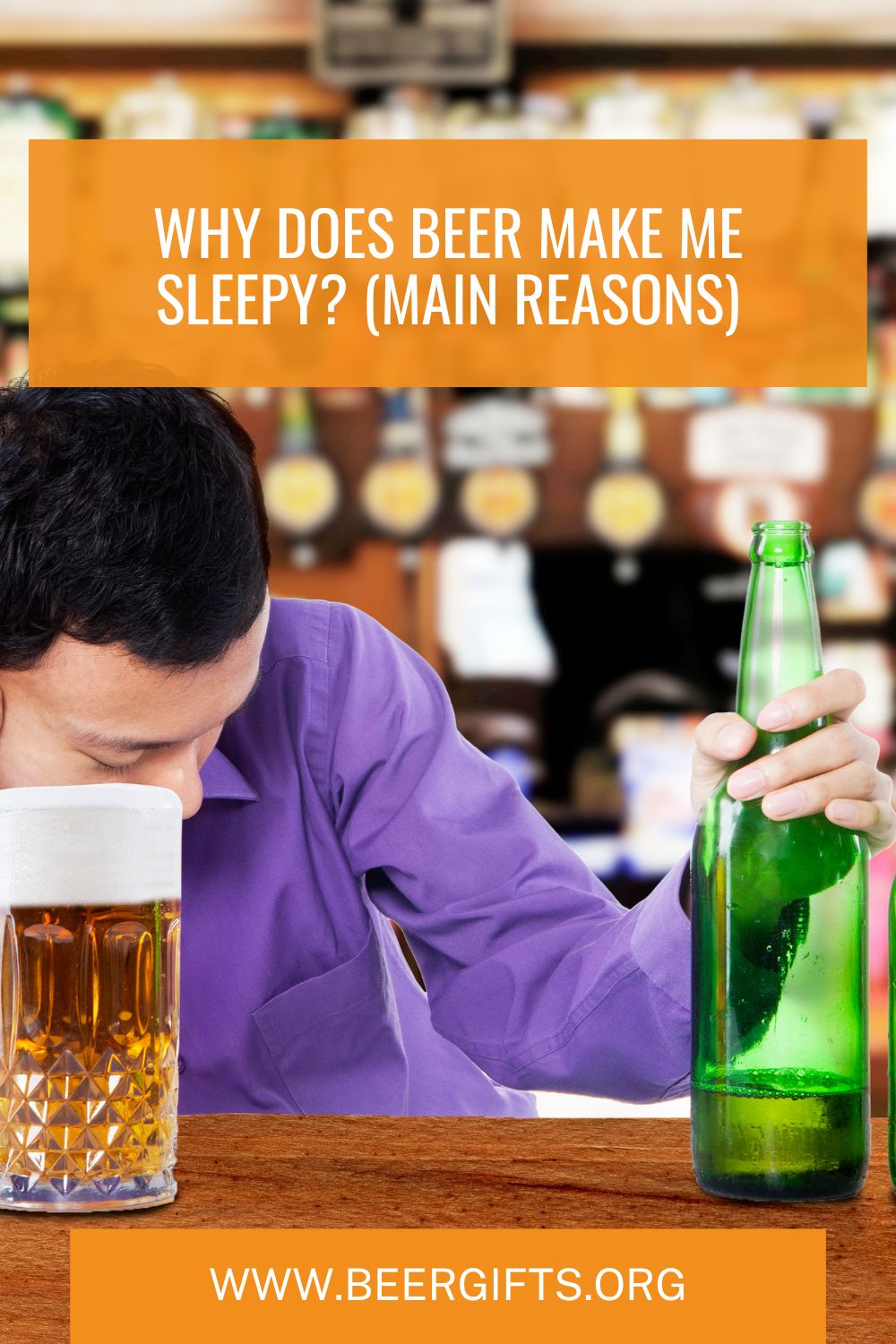If you’re a beer drinker – and if you’re reading this, there’s a good chance you are – you’re probably familiar with the common effect that beer has on people, namely, that it makes them want to sleep.
Some people might just accept this as a normal part of drinking beer, but at some point, those with more curious minds will almost certainly have wondered why this happens. So for anyone looking to learn more, here we answer the question, why does beer make me feel sleepy?
What happens when most people drink beer?
Let’s start by painting a picture. You go out to meet your friends on a Saturday evening for some food and a few drinks. You’re full of the energy of the weekend, and you’re happy to let off a bit of steam after a hard week at work.
However, as the evening wears on and you sink a few glasses, you start to feel drowsy, and the moment you arrive home at the end of the night, you fall sound asleep – in your bed if you were sensible about what you drank, but maybe on the sofa if you weren’t.
However, by about 4am, you’re wide awake again with no chance of dropping back off. And it’s a good thing that tomorrow is Sunday because there’s no way you could go to work the way you’re likely to be feeling in a few hours.
You may have thought this only happens to you, but actually, it’s an experience anyone who drinks alcohol will know well.
So now let’s think about why it happens.
Why does alcohol make you sleepy?
Of course, the main ingredient in beer that puts you to sleep is alcohol – and this is no secret. After a few glasses of beer, wine, vodka or any other alcoholic beverage, most people will start to feel drowsy. But why?
It has to do with the way alcohol affects your brain – and most specifically, how it interacts with what are known as GABA-A receptors.
GABA-A receptors are a type of protein found on around 80% of neurons, and their job is to receive gamma-aminobutyric acid (GABA), a kind of neurotransmitter – or chemical messenger.
When GABA binds with a GABA-A receptor, it allows chloride ions to enter the neuron, causing the neuron to fire more slowly, and this is a natural mechanism that makes you feel more relaxed or sleepy.
However, when alcohol molecules are present, the effect is enhanced, and the feeling of relaxation or sleepiness is amplified.
The more you drink, the more relaxed you will feel, and after several drinks, you will begin to become drowsy. And if you continue drinking, the inevitable result is that you will eventually fall asleep.
Why does beer make you more sleepy than other alcoholic drinks?
So this is a brief and simplified explanation of the science behind why alcohol makes you feel sleepy, but many people also claim that beer in particular makes them feel more sleepy than other drinks.
For example, many people can happily drink several glasses of wine and still remain alert, but a few pints of beer will have the same people snoring. So is there any science to back up this anecdotal evidence?
As it happens, there is.
One of the main ingredients in beer is hops, the flowers of the hop plant Humulus lupulus. In the brewing of beer, malt sugars are fermented to create alcohol, leaving the drink excessively sweet – so hops, with their naturally bitter flavor, are added to balance this sweetness.
However, as well as having a desirable bitter taste, hops have another quality – the hops plant has long been known as a soporific.
In past times, hops were prescribed as a folk medicine for ailments such as anxiety, nervousness, restlessness and insomnia, and pillows stuffed with hops were even used to help people who had trouble dropping off.
More recently, the relaxing effects of hops have been investigated more scientifically. It has been observed that hops have a calming effect on mice, and in one study, drinking non-alcoholic beer containing hops was shown to enhance the sleep of nurses working a night shift.
So when you combine the natural sleep-inducing qualities of alcohol with the inherent relaxing properties of hops, it’s no wonder that some people report feeling sleepy after just one or two glasses of beer.
But what happens next?
That’s not the whole story, though, because having fallen asleep after drinking alcohol, it is just as common to awake prematurely in the middle of the night, leaving you quite unable to sleep again even if you still feel drunk.
And for this phenomenon, again it’s those GABAs and GABA-A receptors you have to thank.
A few hours after drinking, the GABA-A receptors become inured to the action of alcohol molecules and of GABA itself, and when this happens, the receptors retreat into the neuron, preventing the chloride ions from entering.
The presence of chloride ions calms the neurons, but without them, the neurons go into overdrive. The result is that the person wakes up feeling agitated and “wired”, often with a feeling vaguely similar to that experienced after drinking a strong cup of coffee.
And the more you drink, the more pronounced the effect – when you drink a lot, it puts you right to sleep. But once the sleepiness wears off, you wake up with your head buzzing.
How alcohol affects your dreams
Again, this is all a simplified version of what’s happening, and there’s also a lot more going on – but we don’t have time to talk about it all here.
However, there is something else that’s worth mentioning, and that’s how alcohol affects your sleep – because not only do you wake up early, but you also wake up with a groggy feeling that makes it hard to function the next day. So why is this?
When we sleep, there are several different phases, but one of the most important is what’s known as REM sleep. REM stands for Rapid Eye Movement, and it is so called because that’s exactly what your eyes are doing during this phase – and this is also when we dream.
Our understanding of dreaming is far from complete, but it is known that this part of sleep is essential for memory and concentration among other things, and if you don’t get enough REM sleep, your ability to concentrate or remember things the next day will suffer.
Furthermore, a lack REM sleep in the longer term can lead to a range of cognitive and other health issues.
The important point here, though, is that alcohol prolongs non-REM sleep and reduces the amount of time spent in REM sleep – and sometimes, it can stop you entering REM sleep entirely. So after alcohol, although you sleep, you don’t benefit from healthy REM sleep.
Other sleep-related issues related to alcohol
The way alcohol affects your sleep is not restricted to your dreams, however.
Drinking alcohol can disrupt your natural circadian cycle (or in other words, your sleeping patterns), leading to short-term insomnia.
Due to its diuretic properties, also interrupts your sleep since you will need to get up in the night to go to the toilet (and when you wake up the next day, you will be dehydrated too, which contributes to your hangover).
In the short term, the action of GABA-A receptors and GABA chemical messengers returns to normal after you sober up, but in long-term drinkers, their production is reduced.
This means the neurons don’t receive the usual calming chloride ions, and this, in turn, may lead to long-term insomnia as well as chronic anxiety and nervousness.
How to avoid feeling sleepy when drinking beer
If you want to avoid feeling sleepy after drinking beer, there are a couple of things you can do.
The most obvious is to avoid beers that have a high alcohol content, but since the hops may also be responsible for putting you to sleep, you might also prefer to avoid hoppy beers like IPAs – or at least to enjoy them in moderation.
Moderation is the key since if you don’t drink excessively, you should be able to fend off the soporific effects of mild doses of alcohol and hops.
You should make sure you don’t drink on an empty stomach, or the effect will be more pronounced, and it may help if you keep active, moving around and talking to people. If you lie down and close your eyes, on the other hand, that could be game over.
How to avoid the ill effects of drinking alcohol
To avoid the other ill effects of alcohol, avoid drinking excessively, and if you do occasionally have one too many, try to make sure it doesn’t happen too often.
To get a good night’s sleep after drinking, have your last drink at least two or three hours before bedtime and make sure you also drink plenty of water.
There’s nothing wrong with having a few beers from time to time, but drinking too much too often can lead to long-term health issues including chronic insomnia along with a whole range of other problems.
Alcohol and hops will put you to sleep
As we have seen, alcohol alone can make you feel drowsy, but throw in some hops and you have a drink that’s sure to have you nodding off.
However, due to the way alcohol negatively affects your sleep, using alcohol as a cure for insomnia is not recommended since the quality of your sleep will be poor – and it can also lead to long-term problems, especially as you build up a tolerance.
